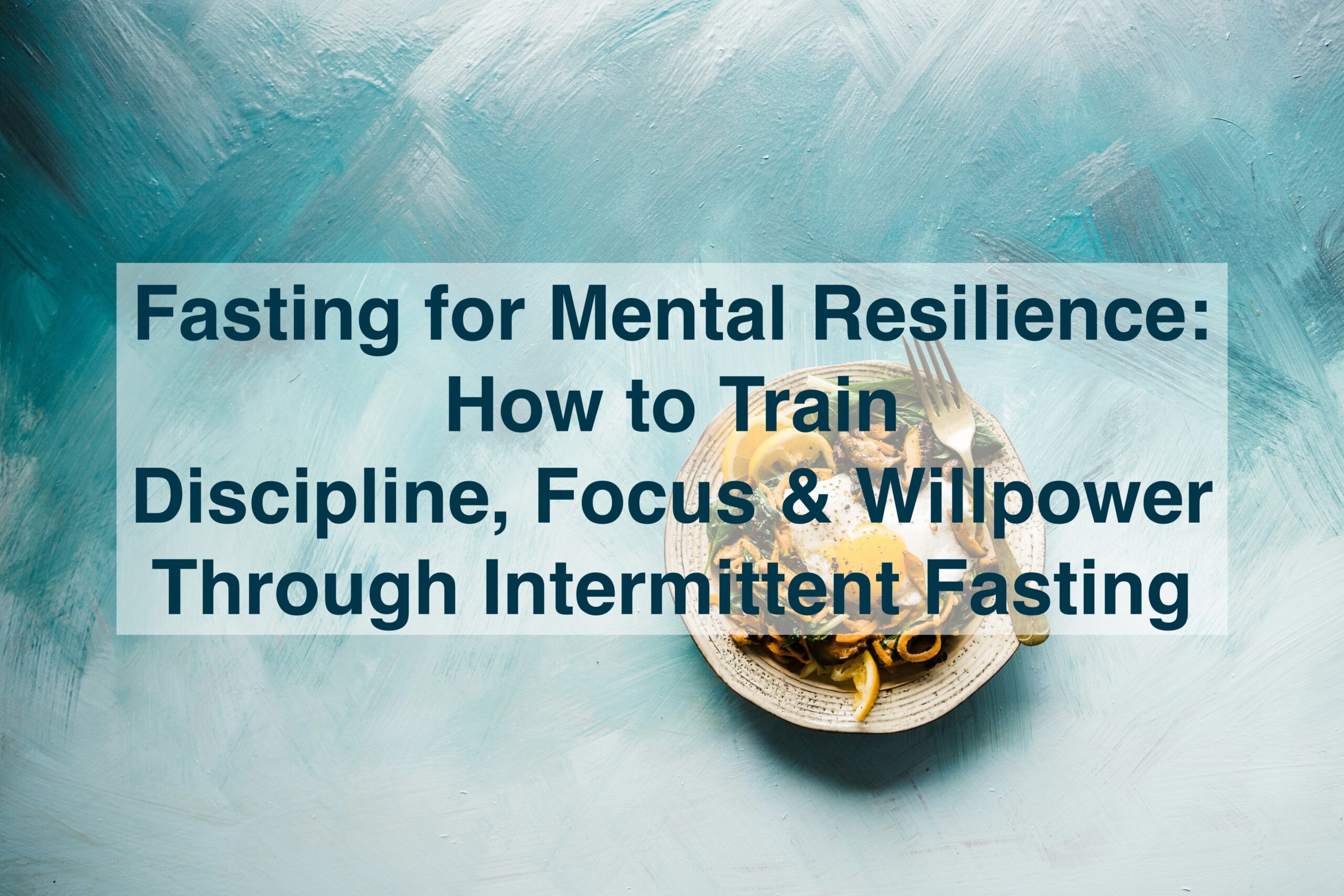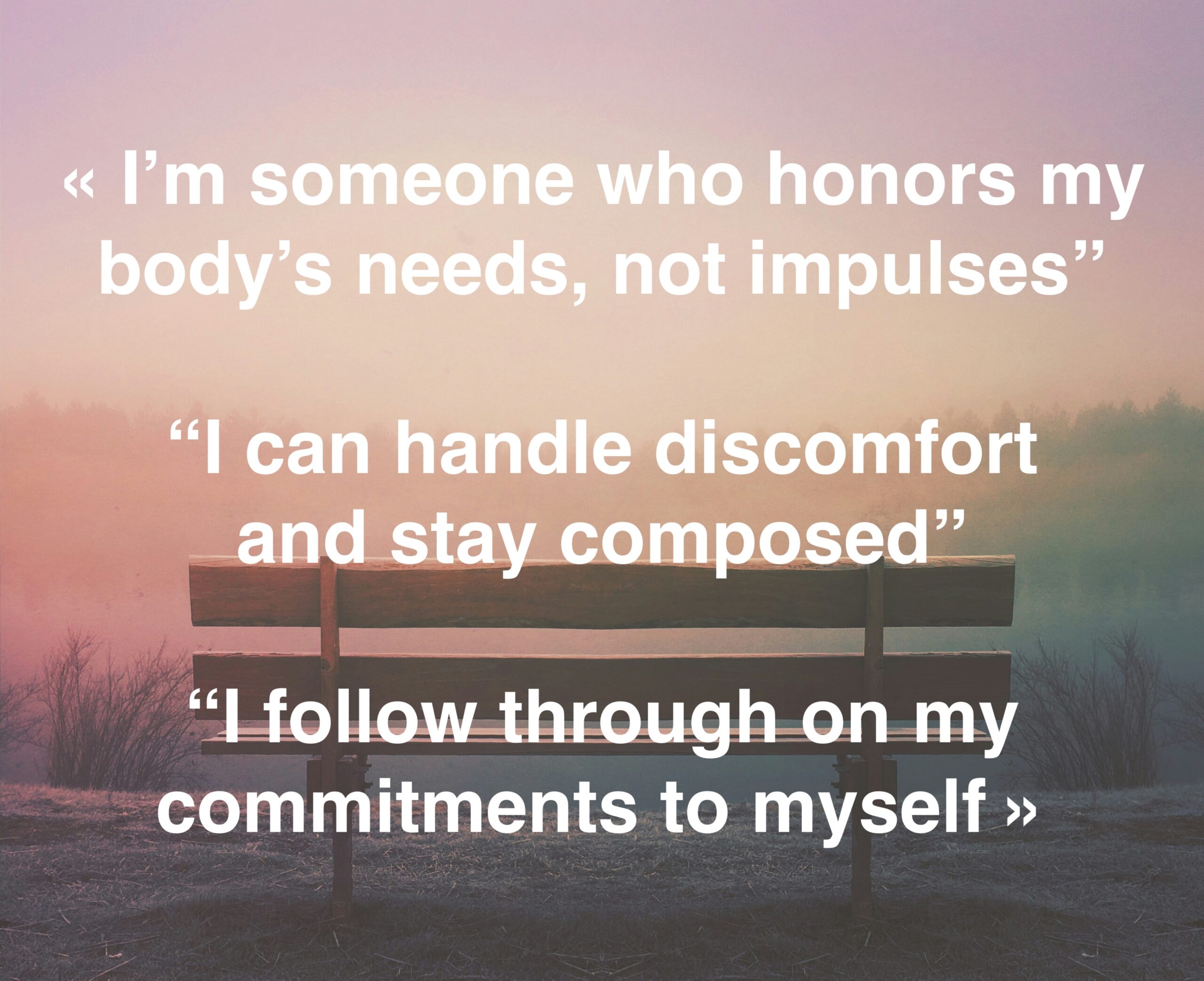
Fasting for Mental Resilience: How to Train Discipline, Focus & Willpower Through Intermittent Fasting
In today’s world of endless distractions and instant gratification, building discipline is a superpower. What if I told you that the food on your plate or rather, the space between meals, could be your secret weapon for cultivating mental strength? Welcome to the mindset side of intermittent fasting for mental resilience.
Why Mental Resilience Matters (and How Fasting Can Help)
You may have heard that intermittent fasting helps with fat loss, insulin sensitivity, and energy. But few people realize it’s also a powerful training ground for the mind, not just the body.
Here’s how:
- Willpower grows through resistance. Every time you resist the urge to snack, scroll, or indulge, you reinforce your inner strength.
- Fasting creates boundaries. You’re no longer eating reactively; you’re eating with intention.
- Focus sharpens in the absence of food. With fewer blood sugar crashes and digestive distractions, your mind becomes more alert and present.
Fasting isn’t just a health tool. It’s a mental resilience practice.
Fasting and Discipline: Why It’s About More Than Skipping Breakfast
Most people associate discipline with rigid routines or grueling workouts. But true discipline is about delayed gratification. Choosing what you want most over what you want now.
Fasting builds this muscle by:
- Creating structured eating windows
- Teaching you to ride out urges rather than react to them
- Building consistency through daily practice
Over time, this discipline leaks into every area of life: work, relationships, finances, sleep.
“If you can control what goes into your body, you can control almost anything.” Coaching mantra I often repeat to clients.
The Neuroscience Behind Mental Clarity and Fasting
Let’s get scientific for a second.
When you fast, your body eventually shifts into ketosis, producing ketones as fuel. These ketones are neuroprotective — they’ve been shown to boost mental clarity and even support conditions like Alzheimer’s and brain fog.
Here’s what happens when you’re fasted:
- Brain-Derived Neurotrophic Factor (BDNF) increases, promoting learning and resilience
- Dopamine sensitivity improves, helping you enjoy simple rewards more
- Insulin levels drop, reducing brain inflammation and stabilizing mood
Many people report that their most creative, focused, and productive hours happen in the fasted state — especially in the morning.
How High Performers Use Fasting to Win the Day
Entrepreneurs, CEOs, creatives, athletes; they all have one thing in common: they protect their mornings and their energy.
Here’s a typical fasted routine for a high-performing individual:
- Wake up: Hydrate, stretch, skip breakfast
- Morning work block: 2–4 hours of deep work in a fasted state
- Break fast: Midday nutrient-dense meal that fuels afternoon momentum
- Evening: Mindful eating window, wind-down routine
Why this works:
- Fewer distractions from food
- Stable energy (no crashes)
- Mental sharpness and clarity
- A feeling of control and structure

Fasting Builds Identity-Based Habits
Fasting is more than behavior, it’s an identity shift.
When you fast consistently, you start seeing yourself differently:
- “I’m someone who honors my body’s needs, not impulses.”
- “I can handle discomfort and stay composed.”
- “I follow through on my commitments to myself.”
This creates a positive feedback loop of confidence, clarity, and control.
How to Get Started: Fasting for Focus Without the Burnout
You don’t need to fast for 24+ hours or jump into OMAD to feel the benefits. In fact, mental resilience builds best when you start slow and stay consistent.
Here’s how to get started:
Begin with 16:8 (fast for 16 hours, eat in an 8-hour window)
Schedule your deep work hours during your fast
Stay hydrated: electrolytes and water are your best allies
Avoid overtraining or fasting under high stress; burnout kills focus
Break your fast with whole, nutrient-dense foods
What to Avoid When Fasting for Mental Gains
Fasting can harm mental clarity if misused. Avoid:
- Skipping meals while stressed or sleep-deprived
- Using fasting to punish yourself
- Drinking only coffee all morning (hydrate!)
- Ignoring your body’s signals (hunger, fatigue, irritability)
Client Success Spotlight
One of my coaching clients, at the start, was an overwhelmed executive, began fasting to lose weight. Within 3 weeks, he realized:
“I don’t just feel lighter physically, I feel sharper mentally. I’m getting more done in 4 focused hours than I used to in 8.”
That’s the hidden power of fasting.
Conclusion: Mental Clarity Begins with Metabolic Control
You don’t have to meditate on a mountaintop to build inner strength. You can start with your plate.
Fasting isn’t just a diet strategy, it’s a discipline practice, a mental edge, and a resilience tool that trains your mind to lead, not follow.

Ready to Break Your Fasting Plateau and Get Results?
Work with me to build a tailored fasting strategy that combines food, mindset, metabolism, and habits for real, lasting results



